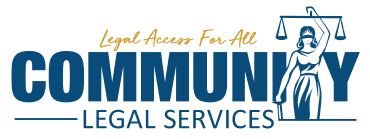If you are applying for immigration status as a lawful permanent resident (LPR) or to enter the U.S. on a visa, USCIS may review your application to determine if you are “likely at any time to become a public charge.”
A new final public charge rule went into effect on December 23, 2022. For all applications postmarked before December 23, 2022, the 1999 guidance applies.
Please read below for information about the public charge rule.
What Are Your Rights?
- receipt of pubic cash assistance for income maintenance or
- institutionalization for long-term care at government expense.”
- Non-citizens applying to be “admitted,” meaning applying for a visa;
- Non-citizens applying to adjust their status to become Lawful Permanent Resident (green card holder); and
- Lawful Permanent Residents who leave the U.S. for 180 consecutive days and want to come back.
- Lawful Permanent Residents (green card holders) applying to become citizens
- Refugees
- Asylees
- Victims of trafficking and other serious crimes (T Visa, U Visa, VAWA)
- Special Immigrant Juveniles
- Certain parolees
- Some other humanitarian immigrants
- Cash assistance for income maintenance under one of the following programs: Supplemental Security Income (SSI); Temporary Assistance for Needy Families (TANF); or state or local cash assistance programs that provide benefits for income maintenance (often called “General Assistance” programs)
- Long-term care at government expense such as nursing home or inpatient mental health care
- Benefits not listed in the rule
- Benefits received by a family member
- Benefits received in another country
- Benefits received by active duty service members, their spouses and children
- Non-cash assistance state and local programs
- Homeless or domestic violence shelters
- Medicaid (other than support for long-term institutional care), Children’s Health Insurance Program (CHIP), and health insurance through the Affordable Care Act
- Health care services such as immunizations, testing for communicable diseases, health clinics, and emergency medicine
- Supplemental Nutrition Assistance Program (SNAP – food stamps)
- Supplemental Nutrition Program for Women, Infants, and Children (WIC)
- Free or reduced school breakfast or lunch programs
- Housing assistance
- Energy assistance
- Child care services
- Federal Earned Income Tax Credits and Federal Child Tax Credits
- Student Loans
- Educational assistance including Head Start
- Emergency disaster relief
- Foster care and adoption assistance
- In-kind community-based programs, services, or assistance
- Social Security retirement and government pensions
- Unemployment benefits
- Transportation vouchers or services
- Job training programs
The Department of Homeland Security (DHS) defines public charge as “an individual who is likely to become primarily dependent on the government for subsistence, as demonstrated by either:
The public charge test only applies to immigrants in three categories:
The public charge test does not apply to:
Only two (2) categories of public benefit programs count towards public charge determination:
*Most people who are subject to a public charge determination are not eligible for these benefits before adjustment of status
Examples of benefits that are not considered include:
What Do You Need to Do?
Find Out if You are Subject to the Public Charge Test BEFORE Applying for Any Type of Immigration Status
There are resources to help you determine if the public charge test applies to you or your family including this interactive benefits guide
The best way to know if you are subject to the public charge test is to speak with a lawyer who specializes in immigration about your specific set of circumstances. CLS’s HELPline attorneys do not give advice regarding immigration matters. To find an attorney who may be able to assist, contact the Florida Bar Referral Service online or by phone at 800-342-8011.
What to Consider Before Taking Action?
You can find additional information about the public charge rule at the following websites:
https://protectingimmigrantfamilies.org/know-your-rights/
https://www.ilrc.org/public-charge
